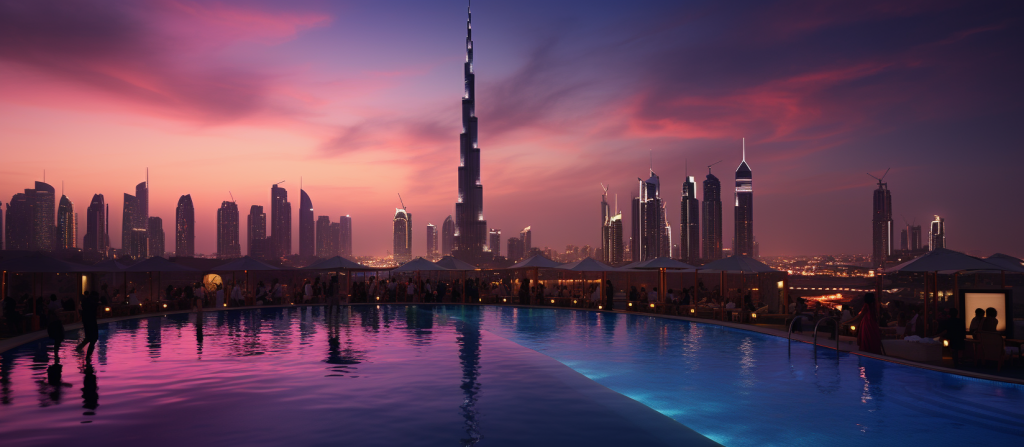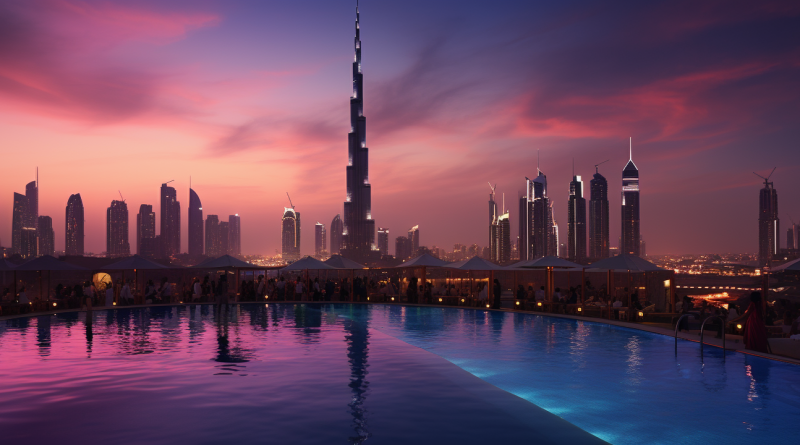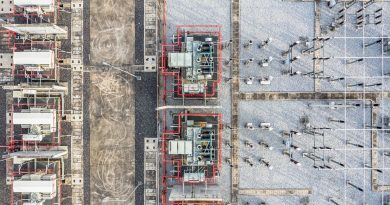Does Big Oil Deserve A Seat At COP28?
The energy and environmental sectors are riled these days over the participation of Big Oil in the 28th Conference of the Parties event, or COP28, kicking off this week in Dubai. The UAE is a curious venue to host a conference that ostensibly aims to collaboratively develop voluntary policy and corporate goals to attempt to limit global warming and reduce greenhouse gas emissions, as the country has some of the largest oil reserves in the world, and around a third of the country’s $500bn GDP (nominal– more like $800bn in PPP) derives from oil and gas. So, this raises a question that is both ethical but also pragmatic in the pursuit of decarbonization: does oil even deserve a place at COP28?

Why Dubai for COP28?
First, why Dubai? The coastal desert city began lobbying to host the climate conference of global dignitaries and fancy people a few years ago. Following Qatar in 212, Dubai will mark the third time an OPEC country has hosted the conference since 2007 (although, be it said, a lot of people weren’t paying attention to it back then!). In my mind, the UAE hosting COP28 is similar to Al Gore headlining the invite-only, exorbitant TED event in Detroit: it’s emblematic of our obsession with chasing after things that are shiny rather than things that are functional or effective. Dubai went from rural backwater in the middle of the 20th century to a favorite stopover on international flights between exotic destinations, and is famous for its retail landscape and gross largesse. The UAE has since become a major player on the global economic stage. While this ascent certainly began with oil, it doesn’t necessarily have to end with oil. I suspect that people in the UAE know this, as the country will inevitably become uninhabitable from the effects of climate change. Temperatures in the UAE’s coastal plain, where Dubai and the capital, Abu Dhabi, are located, routinely breach the 100°F mark for weeks at a time, and just this year the country posted its all-time record high of 50.8°C (123°F).
TED Countdown Detroit: Sustainability’s Problem With Elitism and Respectability Politics
Glimmerings of Hope
I personally would be terrified of visiting Dubai, as someone who is, variously, Jew-adjacent, gay-adjacent, and journalist-adjacent. As much as the UAE desperately wants to be a global contender along with other modernized, wealthy countries, no number of gold-plated Mercedes, rail lines, or billions of investment in renewables will address the fact that the country is an absolute monarchy with a history of serious human rights problems. It’s possible that it’s getting better. After all, the country has slowly walked back some of the more draconian elements of sharia law in recent years. But this is all explored as a means of posing the question. Can it get better? Will COP28 in any way compel people to start thinking about how to make it better?
As someone with an MBA who often finds himself arguing that capitalism’s broad toolbox can be used to solve at least some of the world’s problems, the idea of Dubai as a generator of climate solutions is at least an intriguing prospect. If I had a trillion dollars of my own money, for example, I can think of a lot of stuff I could do with it– to retrofit housing to be more energy-efficient, for example, or to build sustainable energy systems.
The UAE is at least looking this direction, having (relatively) recently begun construction of rail links across the country (to contend with the country’s famous car culture), and having invested heavily in renewable energy. The country has committed to investing tens of billions of dollars in renewables, with a large chunk of this coming from Masdar itself, which is headed by Sultan Al-Jaber, who effectively (and controversially) has been appointed leader of the COP28. That’s not an insignificant amount of money.
But it doesn’t demonstrate that the country is committed to sustainability.

Big Oil vs. Sustainability
We return to a gloomier outlook when we find out that organizers of COP28 in the UAE allegedly planned to use the conference to negotiate new oil and gas deals. This is, of course, not terribly surprising. A Middle East oil power, exercising its oil wealth to try and get more oil wealth?! Stop the presses! I know, I know. But however we’re looking at it, Big Oil has gotten much more involved in the climate discussion lately, ranging from dispatching its loyal communications staff to LinkedIn to tell sustainability experts why we should actually embrace carbon capture solutions, or CCS.
CCS comprises a somewhat poorly-defined basket of mostly experimental technologies. Exploring the virtues or failings of them would require a much longer article. But suffice it to say that these are pushed by Big Oil because, if they were actually workable, they would theoretically allow us to keep extracting fossil fuels endlessly. We could simply capture the carbon dioxide created and, well, do what with it, it’s not entirely clear. There are limited industrial uses for pure carbon dioxide. Pro-CCS environmentalists outside of Big Oil, though, argue that we need to figure out a way to capture the carbon that is already in the atmosphere if we’re going to reduce the effective rate of CO2 in the atmosphere. I am not an expert in this subject, so I don’t know to what degree this is actually true, but it at least seems to be a credible idea at some level.
But frankly, no one has really figured out what the role of Big Oil should be in the process of decarbonization. We know, of course, that we have to stop burning as many fossil fuels. We can’t really nationalize these companies and dismantle them. Nor can we litigate them in antitrust proceedings because most of them are somehow tied back to OPEC, which yields to, well, no one.
Nor can we readily ditch oil today or tomorrow without people making massive adjustments to their lifestyles. Some of these are feasible. This realm of possiblity ranges from macro level urban planning interventions (YIMBY, densification, monumental transit investment, etc.) to simply consuming way less (instead of buying stuff online every week or two, more like buying stuff online never– or at least limiting any consumer practice that results in things being delivered to your front door in a truck). There are, of course, policy interventions and things connected to federal spending that could accelerate new technology, transform consumer markets in a way that facilitated the growth of local, sustainable economies while undermining the corporate stranglehold of oil-dependent mass consumption (thinking about a carbon tax here, people). I’ve watched with a great deal of skepticism but also genuine curiosity as the Department of Energy pours billions of dollars into experimental and new technology, advancing, among other things, the vaunted CCS.
In this way, I suppose I am, to some degree, technology-agnostic about how we get to net zero. I do believe that we have to consume less. I definitely believe that this isn’t going to happen through exercise of political power, antitrust litigation, or domestic drilling in the Arctic National Wildlife Refuge, but rather from simply reducing reliance on fossil fuels. And, finally, I believe that Dubai, arguably the global capital of capitalist excess hybridized with an autocratic Middle East oil monarchy, is perhaps a somewhat lousy place for COP28– if we are trying to figure out ways to consume less.
I will see if I can’t dig up some juicy details and post them as COP28 kicks off tomorrow.



